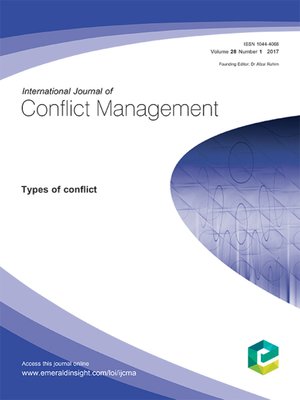International Journal of Conflict Management, Volume 28, Number 1
ebook ∣ Types of Conflict · International Journal of Conflict Management
By Richard Posthuma

Sign up to save your library
With an OverDrive account, you can save your favorite libraries for at-a-glance information about availability. Find out more about OverDrive accounts.
Find this title in Libby, the library reading app by OverDrive.



Search for a digital library with this title
Title found at these libraries:
| Library Name | Distance |
|---|---|
| Loading... |
In this special issue of the International Journal of Conflict Management we focus on important research questions that deal with different types of conflict. In recent years, there has been an increasing interest in studying the differences between two types of conflict, task and relationship conflict. Task conflict focuses more the work that needs to be performed. Relationship conflict focus more on interpersonal interactions. That stream of research has revealed important insights about how these two types of conflict function similarly and differently.However, in this special issue we build on that stream of research, and go beyond these two types of conflicts to study other types of conflicts and to study them in different settings as well. This special issue includes 6 articles that focus on the predictors, outcomes, moderators, and mediators of different types of conflict. These studies examine many different conflict types including relationship and task conflicts. We add to this literature by publishing studies on other types of conflict such as cognitive versus affective conflict, and even more refined types of conflict such as cognitive task conflict, emotional relationship conflict, intragroup, interorganizational, and top management team conflicts.In addition, most of the research on types of conflict has tended to be generated in western countries and cultures. The studies in this special issue go beyond those settings to study types of conflict in other countries including China, India, and Pakistan. By adding these settings to the literature on types of conflict, we not only facilitate the generalization of our knowledge, but also open the door to insights that can be gleaned from scholars in other cultures and settings.







